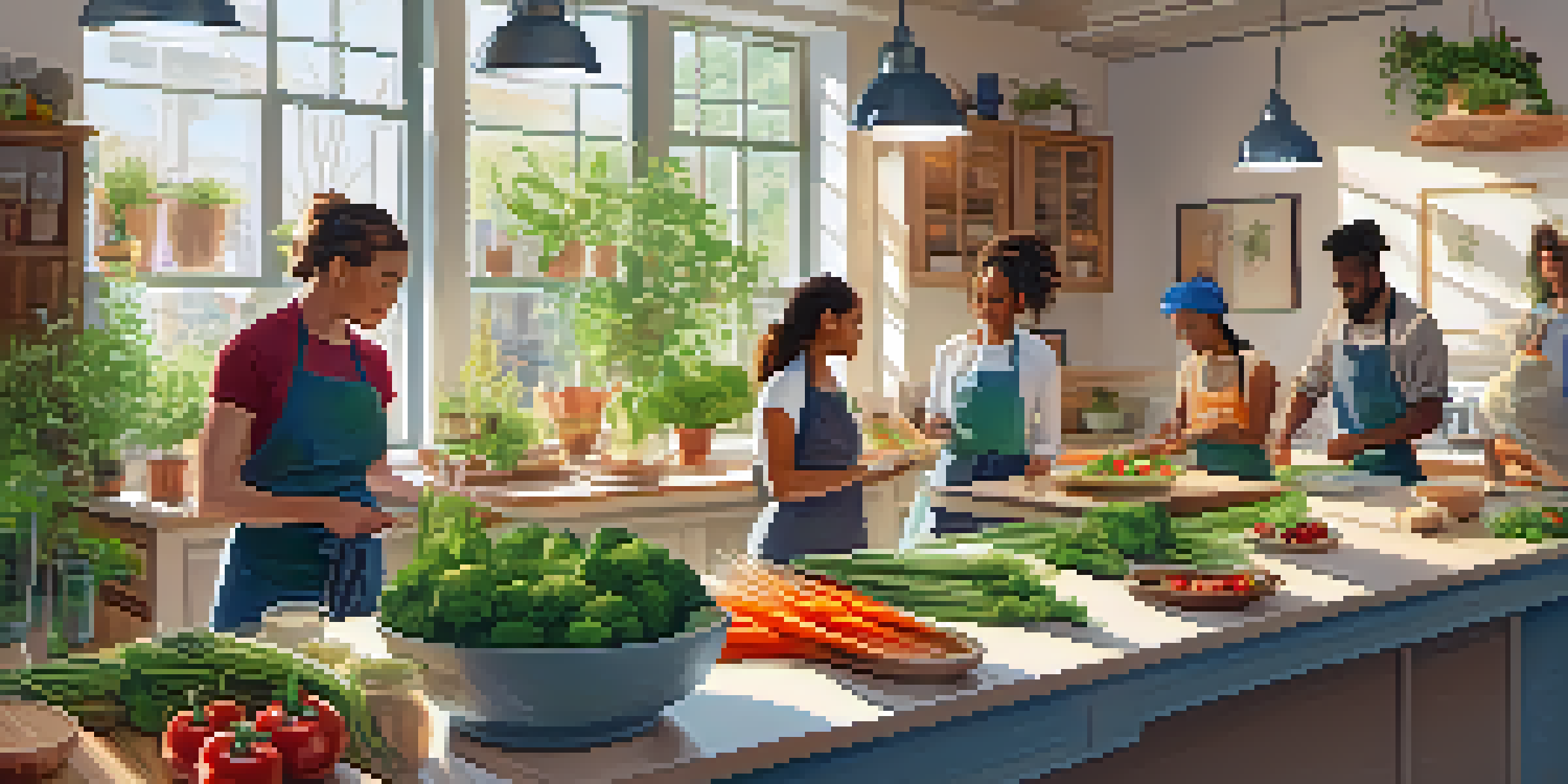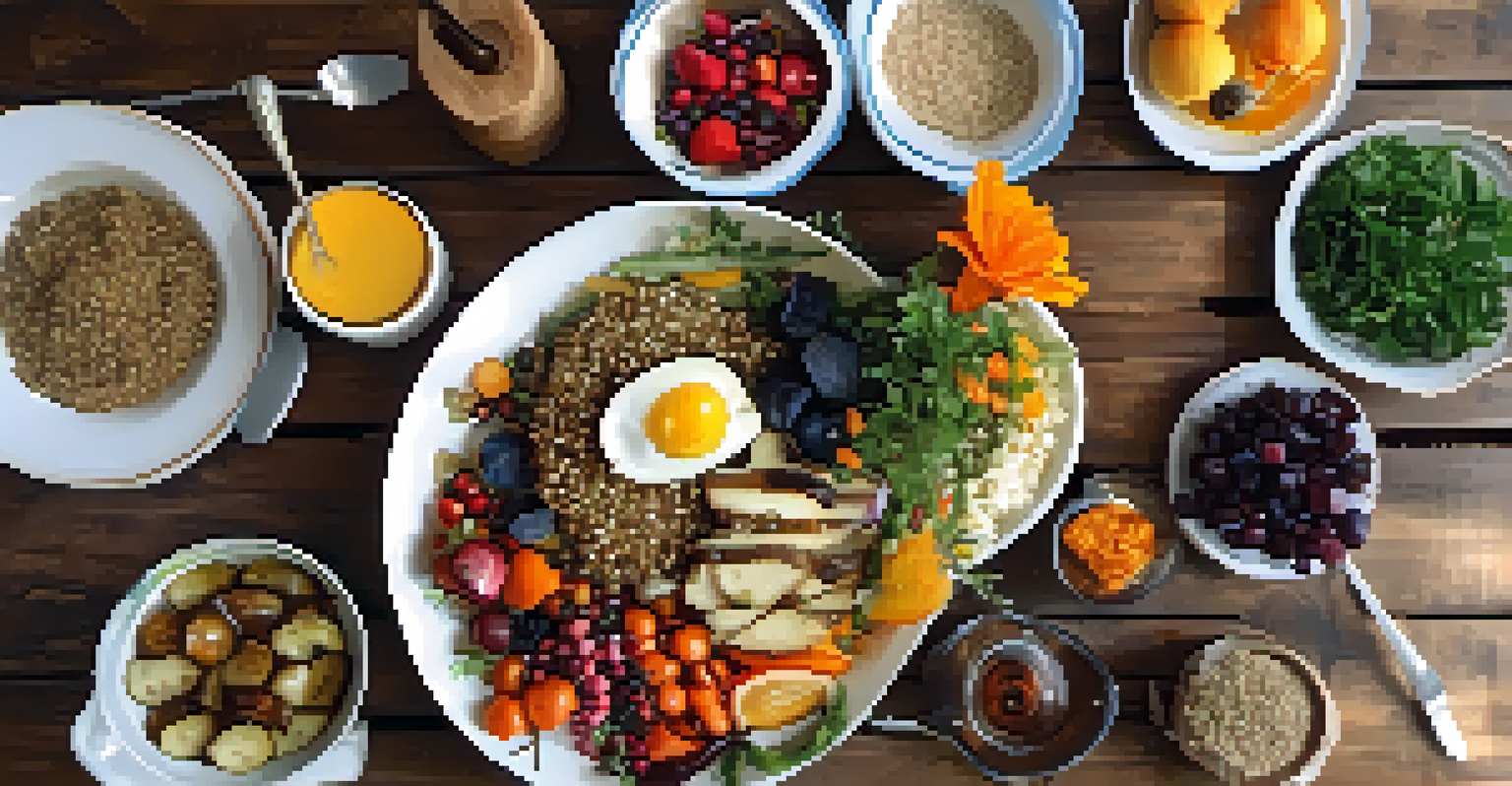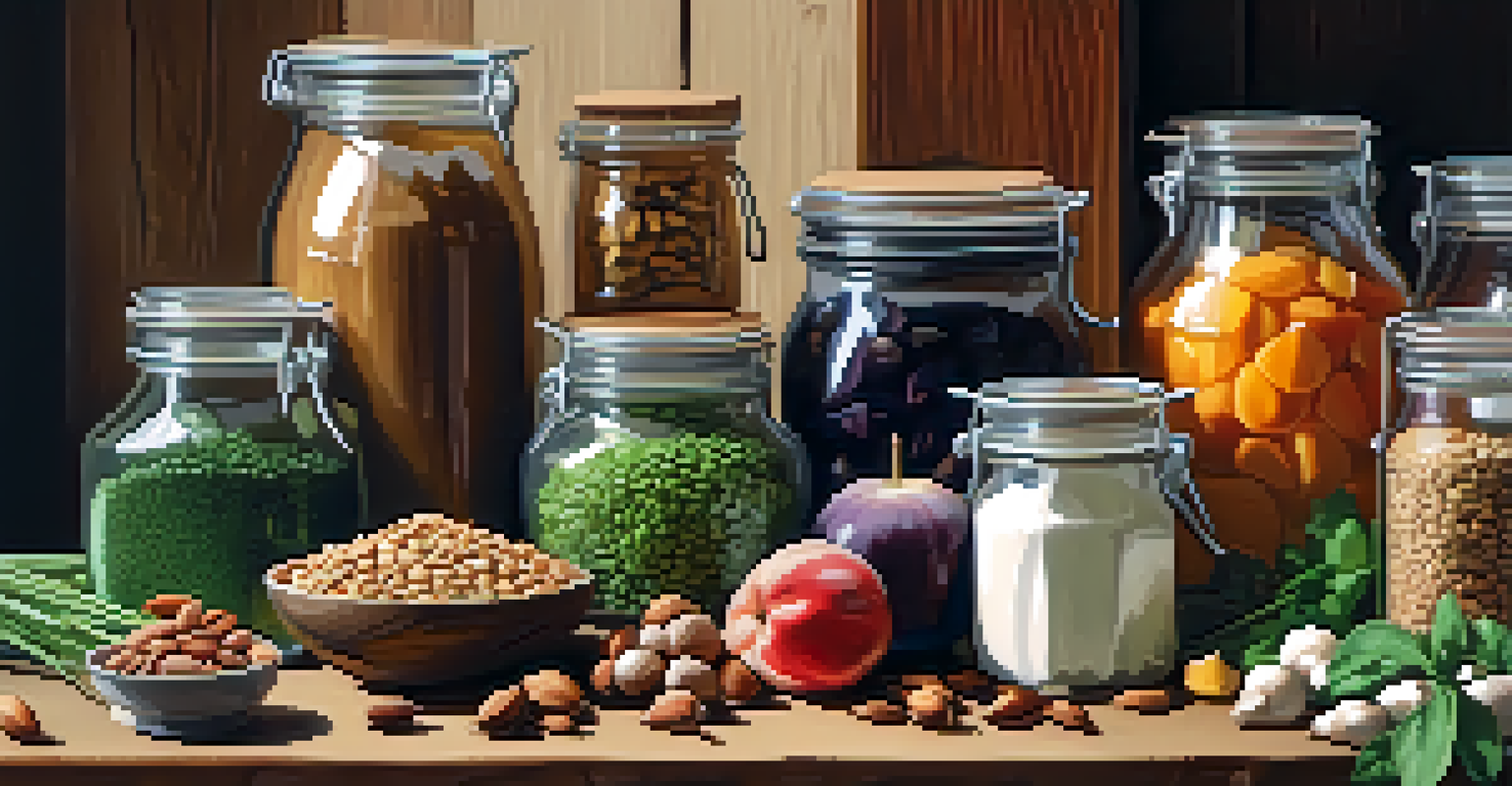Vegan Cooking Classes: A Guide for Aspiring Chefs Everywhere

Discover the Benefits of Vegan Cooking Classes
Vegan cooking classes offer a fantastic way to dive into plant-based cuisine. With the increasing popularity of veganism, these classes not only teach you how to cook but also promote a healthier lifestyle. By learning to prepare meals without animal products, you can explore new flavors and ingredients that you may not have tried before.
Let food be thy medicine and medicine be thy food.
Moreover, these classes provide a supportive environment where you can connect with like-minded individuals. Sharing your culinary journey with others can be inspiring and motivating. Plus, you’ll leave with newfound skills and recipes that you can use to impress family and friends.
Finally, attending a vegan cooking class can help you understand the nutritional benefits of a plant-based diet. Educators often share insights on how to balance your meals to ensure you get all the necessary nutrients while enjoying delicious dishes.
Types of Vegan Cooking Classes Available
When it comes to vegan cooking classes, you have plenty of options to choose from. There are online classes that allow you to learn at your own pace from the comfort of your kitchen. Whether you prefer live sessions or pre-recorded videos, online platforms offer flexibility that suits various schedules.

In-person classes are another great choice, providing hands-on experience and immediate feedback from instructors. Many local community centers, culinary schools, and even restaurants offer these classes, making it easy to find one nearby. This direct interaction can enhance your learning experience tremendously.
Vegan Classes Enhance Culinary Skills
Vegan cooking classes teach you to prepare delicious plant-based meals while promoting a healthier lifestyle.
Additionally, some classes focus on specific cuisines or techniques, such as vegan baking, international dishes, or raw food preparation. These specialized classes can deepen your culinary skills and expand your repertoire, helping you become a more versatile chef.
What to Expect During a Vegan Cooking Class
Attending a vegan cooking class is an exciting adventure filled with learning and hands-on practice. Most classes begin with an introduction where the instructor shares their background and culinary philosophy, setting the tone for the session. This is also a great time for participants to introduce themselves and share their cooking experiences.
The more you eat plants, the more you become a plant.
As you dive into the cooking process, expect to learn not just recipes but also techniques that can elevate your culinary skills. Instructors often provide tips on ingredient substitutions, flavor pairings, and presentation styles. You'll also have the opportunity to ask questions and receive personalized advice.
Finally, most classes culminate in a communal meal where participants can share their creations and enjoy the fruits of their labor. This aspect not only enhances the experience but also allows for networking and building friendships in a warm, welcoming environment.
Essential Ingredients for Vegan Cooking
Before you embark on your vegan cooking journey, it's important to stock your pantry with essential ingredients. Key staples include grains like quinoa, brown rice, and oats, which serve as a wholesome base for many dishes. Don't forget legumes such as lentils, chickpeas, and black beans, which are excellent sources of protein.
You’ll also want to have a variety of nuts and seeds on hand, as they add texture and flavor to your meals. Items like almond butter, chia seeds, and sunflower seeds can elevate your dishes while providing healthy fats. Fresh fruits and vegetables are, of course, the heart of any vegan meal, so consider seasonal options to ensure freshness.
Variety of Class Formats Available
You can choose from online or in-person classes, each offering unique learning experiences tailored to your preferences.
Finally, having a selection of herbs, spices, and condiments will help you create depth and complexity in your cooking. Ingredients like nutritional yeast, tamari, and coconut aminos can enhance flavors and make your meals more satisfying.
Tips for Choosing the Right Cooking Class
Choosing the right vegan cooking class can feel overwhelming, but a few simple tips can help narrow down your options. First, consider your skill level—are you a beginner or looking to refine your existing skills? Many classes cater specifically to different levels, so you can find one that matches your experience.
Next, think about what you want to learn. Do you want to focus on quick weeknight meals, gourmet dishes, or perhaps baking? Identifying your goals will help you select a class that aligns with your interests. Reading reviews or testimonials from past participants can also provide insight into the class's quality and teaching style.
Lastly, consider the class format that suits you best. Would you prefer a hands-on approach, or do you want the flexibility of learning online? Understanding your learning style will help you choose a class that is not only educational but also enjoyable.
How to Continue Your Vegan Cooking Journey
After completing a vegan cooking class, the journey doesn’t have to end there. Continuing to experiment in your kitchen is key to retaining what you’ve learned. Use the recipes and techniques from your class as a foundation and start exploring new ingredients or cuisines on your own.
Joining online forums, social media groups, or local clubs focused on vegan cooking can also provide ongoing support and inspiration. Sharing your successes and challenges with others can motivate you to keep pushing your culinary boundaries. Plus, you’ll gain access to a treasure trove of new recipes and tips.
Celebrate Your Cooking Journey
Sharing your cooking achievements with others and documenting your progress can inspire continued exploration and growth in vegan cuisine.
Finally, consider taking advanced classes or workshops to further hone your skills. Many chefs offer specialized sessions that dive deeper into certain topics, such as fermentation, vegan cheese-making, or meal prep strategies. This continuous learning can keep your passion for vegan cooking alive and thriving.
Celebrating Your Vegan Cooking Achievements
One of the best parts of learning to cook is celebrating your achievements, no matter how small. After mastering a new recipe, why not host a tasting party with friends or family? This way, you can share your culinary creations and inspire others to explore vegan cooking.
Documenting your cooking journey through social media or a personal blog can also be a fun way to reflect on your progress. As you post pictures and share recipes, you might connect with a community of fellow vegan enthusiasts who appreciate your passion. Plus, it serves as a great way to track your improvements.

Lastly, don’t forget to treat yourself! Whether it’s investing in high-quality cooking tools or taking a trip to a vegan restaurant to savor new flavors, acknowledging your hard work is essential. Celebrating your journey not only boosts your confidence but also fuels your enthusiasm for continued culinary exploration.